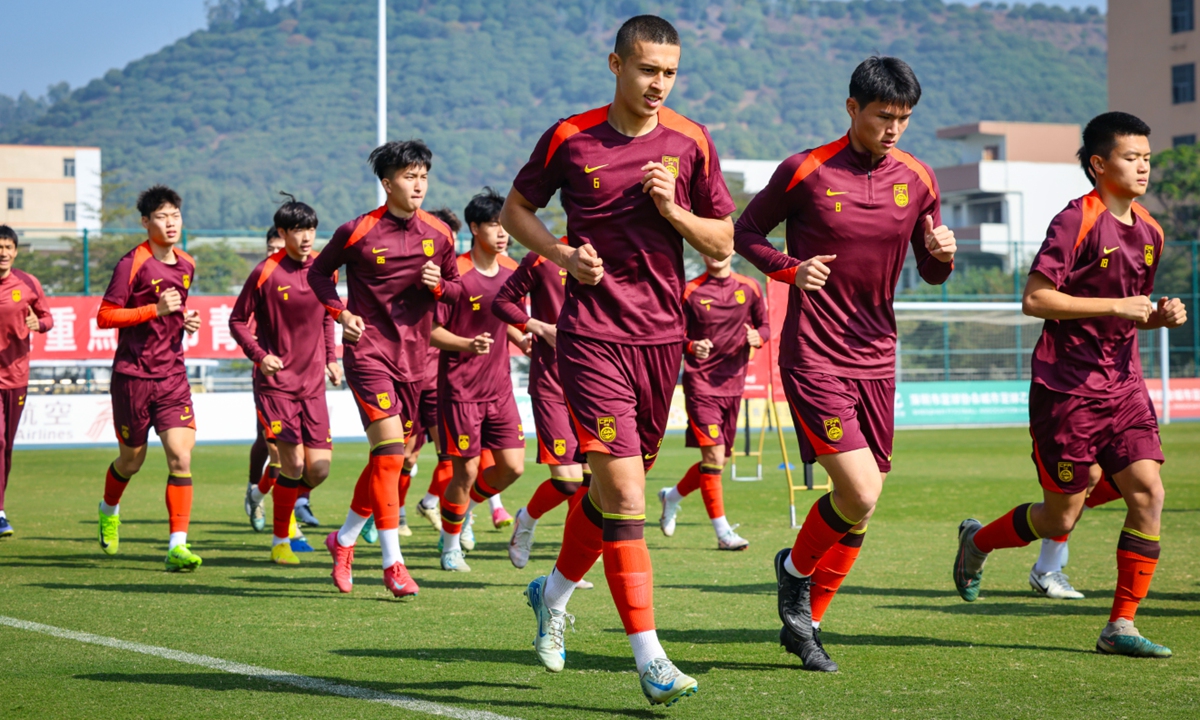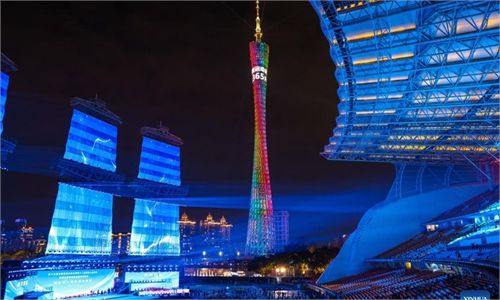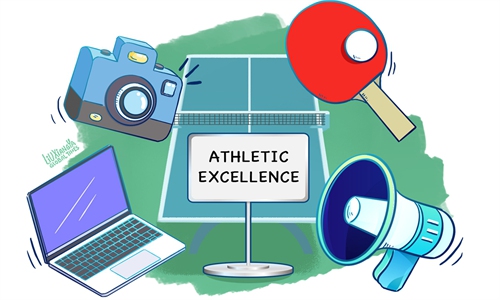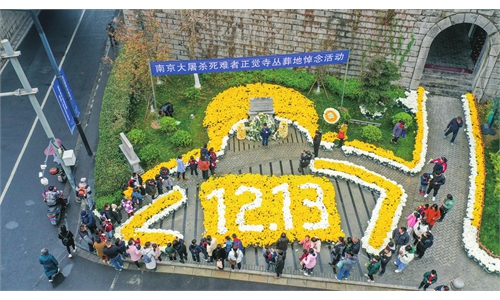SPORT / MISCELLANY
GAS head vows to curb extreme fan culture
Comprehensive plan being drafted to deepen sports reforms

Chinese men's under-20 national football team players train in Shenzhen, South China's Guangdong Province, on January 7, 2025 to prepare for the 2025 AFC U-20 Asian Cup set to be held in Shenzhen in February. Photo: VCG
Gao Zhidan, director of China's General Administration of Sport (GAS), on Tuesday once again underlined the importance of cracking down on extreme fan culture in sports, while outlining ambitious plans to strengthen the development of athletics and major ball games.
Gao addressed the long disruptive fanquan (Lit: fan circle) issue, the Chinese word referring to extreme fan behaviors, during the ministerial interview session of the National People's Congress on Tuesday. He emphasized the need to safeguard sportsmanship from behavior associated with obsessive fan communities.
"The Chinese sports spirit is not only the soul of Chinese sports but also a precious treasure of the Chinese nation," Gao said. "We must firmly resist the erosion and disruption of extreme fan culture."
Gao's remarks came amid growing concerns over online harassment, defamation and factional disputes involving athletes, which authorities have labeled a threat to the integrity of competitive sports. The call to curb "fan circle culture" aligns with recent efforts by sports bodies to rein in unruly fan behavior.
Earlier, the GAS convened a national meeting to address risks posed by extreme fan communities, stressing stricter management of fan clubs and stadium culture.
"Sports must inspire patriotism and unity, not division," Gao said. In a recent public letter to netizens, he also condemned "toxic idolization" that distorts athletes' public image.
Also on Tuesday, the Chinese Table Tennis Association issued guidelines urging fans to avoid insults, rumors, and online "fan wars" targeting athletes.
The proposal was drafted during this year's two sessions amid voices to curb the detrimental impacts of extreme fan culture, such as harassment, smear campaigns, privacy violations, and even disruptions at live events.
Wang Dazhao, a Beijing-based sports commentator, rebuked extreme fan behaviors and called for fans to adopt a rational attitude toward the results of a sporting event.
"It's desirable to support all athletes on the international stage no matter who wins the title. The reason why Chinese table tennis maintains long-time dominance globally and continues to thrive is because we have various types of athletes with a diverse range of characteristics, which enable us to continuously improve our competitive strength," Wang told the Global Times.
What truly draws attention during a match is an athlete's technical and tactical performance. However, the extreme behaviors of some fans disrupt the healthy competition environment, Wang said.
China's X-like platform Sina Weibo, along with other social media platforms, announced the shut-down of controversial athlete fan groups after the Asian Cup, with those of Chinese table tennis athletes leading the campaign.
Gao also celebrated Chinese athletes' historic performance at the 2024 Paris Olympics, where the Chinese delegation achieved their best performance in an overseas Olympics with 40 gold, 27 silver and 24 bronze medals.
He hailed athletes' achievements, both in medals and in embodying national pride, a reflection of China's rising strength.
"The athletes' sportsmanship and personal charisma have earned as much praise as their medals, showcasing the nation's progress and vitality," he said.
Gao revealed that the GAS is drafting a comprehensive plan to deepen sports reforms for building China into a sports powerhouse.
Key initiatives include upgrading public sports services, creating a "new nationwide system" to boost competitive sports, and addressing the diverse needs of youth and aging populations through better facilities and events.
The strategy also prioritizes technological innovation and international collaboration to maintain momentum from recent Olympic successes.
Preparations are already underway for the Milan 2026 Winter Olympics and the Los Angeles 2028 Summer Games, with a focus on breakthroughs in athletics and the "three major ball games" - football, basketball and volleyball.
In 2024, the GAS hosted the maiden National Youth Games in Football, Basketball and Volleyball, with a planned National Youth Games in Athletics expected to be held in 2025.
The city of Nanjing in East China's Jiangsu Province will host the World Indoor Athletics Championships later in March, while Beijing will host the World Championships in 2027, 12 years after the last time it played host.
Beyond competitive goals, Gao highlighted sports' role in driving urban development, rural revitalization, and regional growth. Plans to boost the sports economy will focus on event hosting, outdoor recreation, and winter sports industries.
"China's athletic spirit is not just the soul of our sports - it's a treasure of our nation," Gao concluded.
"We will keep telling China's sports story to fuel modernization and national pride."



